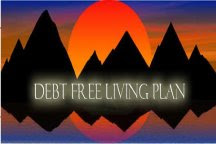
One major reason why people remain chained to debt and never build wealth is due to car or other vehicle payments. Aside from a home mortgage payment, debt obligations for vehicles rank as a top "income eater" for most American consumers.
Here is a common scenario involving a leased vehicle. Let's say, for example, you lease a $30,000 auto for six years. Allowing for taxes and insurance, your monthly payment will be about $400. At the end of the lease period $28,800 in vehicle "rent" has been paid. Odds are that another vehicle will be leased for a new six-year term with an equal or greater amount of hard-earned dollars going down the drain. A typical statement frequently heard is, "I'll always have a car payment." These words don't have to be self-fulfilling.
The average millionaire reaches this financial pinnacle because the majority of them avoid being chained to a monthly car payment. Wouldn't you prefer having $400 eventually going into your personal savings or investment account instead of lining the pockets of a leasing company?
Here is an example of a strategy that can eliminate car payments forever:
Step One-At the end of your current lease term, purchase a quality used vehicle for $6,000. Finance it over four years. Assuming an interest rate of 6.5%, the monthly payment will be $151. Let's round the amount to $170 to account for taxes and insurance.
Step Two-Subtract the new monthly payment of $170 from the previous monthly lease payment of $400. Put the difference of $230 into a savings or money market account. At the end of four years, assuming an interest rate of 5%, your total savings will be $12,200.
Step Three-After the initial four-year period, sell your paid-for vehicle and purchase a later-model used vehicle for $10,000 cash from your savings account, leaving a balance of $2,200. Continue to save $400 per month for another four years. The entire amount now goes into your savings account. At 5% interest, the balance will grow to $23,900 before taxes.
Step Four-Repeat this strategy of upgrading to newer vehicles and paying cash every four years. You'll eventually be able to buy a car of your dreams and still accumulate a substantial savings nest egg.
Making the transition from vehicle leasing to vehicle ownership involves some discipline and persistence. Is it worth the effort? Absolutely.
Driving debt free vehicles is much easier on the pocketbook and you'll certainly enjoy great peace of mind.
 Add to Onlywire
Add to Onlywire



